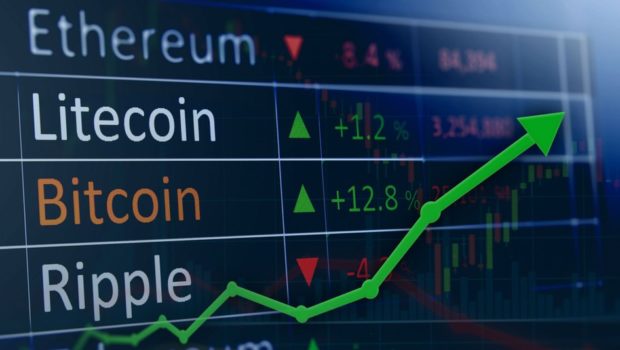Centralized Or Decentralized Exchange, What Is the Difference?
One of the reasons for the growing popularity of blockchain technology is that it is largely decentralized. Unlike fiat currencies which are controlled by governments and central banks, the cryptocurrency market is unregulated and decentralized. It is, therefore, a great paradox that most crypto exchange markets are centralized.
Just why are crypto markets, largely, centralized when the technology itself is decentralized? In this write-up, we give an in-depth look at both the centralized and decentralized crypto exchange markets.
Image source: https://bestphotos.net/
Centralized Exchange
A centralized exchange is basically an online site that works much like a brokerage connecting cryptocurrency buyers and sellers. As the administrator of the website, the organization is in charge of activities such as security, growth, and maintenance. It works using a business model that’s similar to that of the conventional securities exchange. On this type of crypto market, you will be required to pay a trading fee, without which you cannot access the market.
In essence, a central crypto exchange is merely a third party that brings the buyers and sellers together. They work very well for individuals who are exploring the benefits of blockchain-based currencies for the first time. Since such individuals have no understanding of what goes on in the crypto world, they need someone to introduce them to the market. That is the work of a centralized exchange.
One of the biggest reasons for the popularity of centralized exchanges is the wide range of services offered. Apart from cryptocurrency trading, you will also be able to participate in stop losses, margin trading, and lending.
Many are the centralized exchanges where you can trade fiat currency for the digital ones. These are, therefore, required to conform to the various laws governing money exchange in the countries where they operate. The aim of that is to prevent these platforms from being used to launder money.
Despite the many benefits of centralized crypto markets, they are criticized for negating the decentralized intent of blockchain technology, in general. What happens is that the buyers and sellers are virtually operating at the mercies of a third party. Yet centralized control of blockchain has been shown not to work very well.
In fact, a centralized exchange without proper security precautions can pose the biggest risk to investors, especially due to the illegal activities of hackers. Although centralized crypto markets have learned from the past and are now covered by insurance, they still pose a risk to any investor’s hard earned money.
Decentralized Exchange
A decentralized exchange (DEX) is an autonomous crypto market that takes advantage of blockchain smart contracts. Using the smart contracts, investors can trade without having to go through a third party. In the end, the centralized nature of blockchain technology maintained.
In the cryptocurrency market, decentralized exchanges have only been in existence for a short period of time. That’s why their market share remains very small.
The major similarity between a decentralized exchange and its centralized counterpart is that both are owned and operated by an autonomous organization. However, it is the way the exchange takes place that’s either centralized or decentralized. After developers have developed the program or website, traders are allowed to use it after paying a small fee. This is usually cheaper than what you will pay in a centralized exchange.
For those who are new to the crypto markets, decentralized exchanges can be somewhat intimidating, especially if you are technologically challenged. Also, they may not be as user-friendly as centralized exchanges. Most decentralized exchanges, may not allow traders to exchange anything more than their native cryptocurrencies.
Given the limited variety of assets offered for sale on decentralized crypto markets and the fact that they do not feature unattractive interface, DEXs aren’t very popular.
Conclusion
The debate on whether to centralized or decentralized can take any direction given the pros and cons of both of these types of crypto markets. It is, therefore, hard to draw a clear-cut line and declare that one type of exchange is better than the other.
When all is said and done, you will have to decide which exchange you want to work with, after weighing their pros and cons. You might even want to have the better of both worlds. While a centralized exchange will help you when it comes to trading fiat currencies, its decentralized counterpart is good for the yet-to-be listed tokens. Take a pick.

















